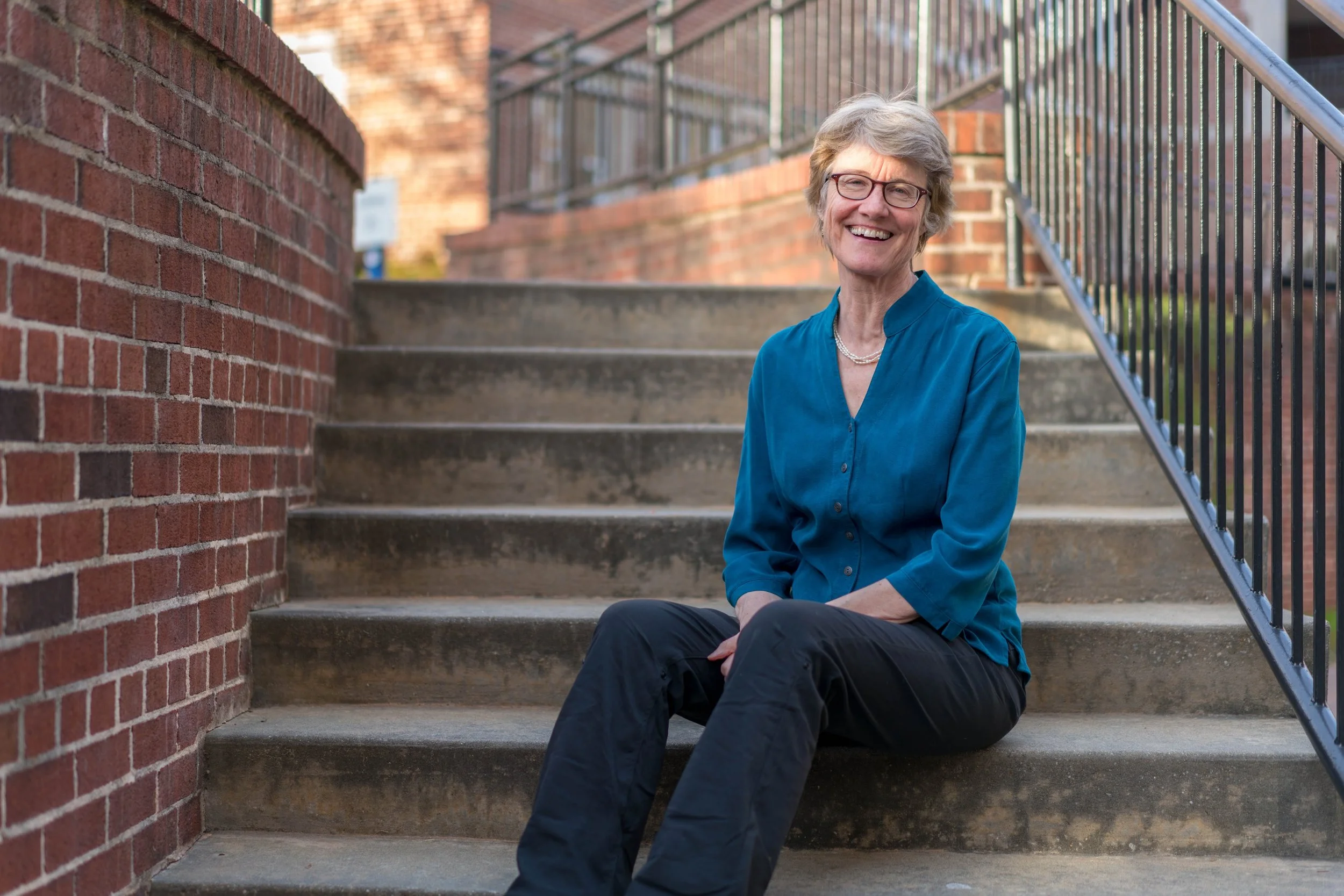Award-winning author to lead book talk at The War Memorial
GROSSE POINTE FARMS Aug. 19, 2025 – In listening to a Vietnam War veteran tell a story, Elizabeth Partridge could tell he was not over that wartime experience. That interaction in the 1980s was the impetus behind a book that will soon be discussed at The War Memorial.
The War Memorial’s Vietnam War Commemoration Celebration continues next month when Partridge leads a conversation about her 2018 nonfiction book “Boots on the Ground America’s War in Vietnam.” Partridge will be at The War Memorial on Saturday, Oct. 4 at 10 a.m.
Partridge, 73, is an American author of books for both adults and young readers, including biographies of Dorothea Lange, John Lennon, and Woody Guthrie. In fact, Lange – best known for her Depression-era work and famed 1936 photograph “Migrant Mother” - was Partridge’s godmother.
“I grew up with her right across town,” she said. “Instead of spending holidays with my biological family, we were with Dorothea and her family.”
“Boots on the Ground: America’s War in Vietnam” weaves together the stories of men and women who served in Vietnam and presents questions like what did they experience? How were they received when they came back home and tried to put their lives back together?
“Every other chapter is about the politics that were going on during the war,” the author said. “I arranged by timeline of those involved in the war. In between that, I look at what Lyndon Johnson was doing, for example. There was a lot of photo research, so I love finding really good photos to make my point.”
In response to how “Boots On The Ground” came to be, Partridge said there was an inciting incident around 1985 that led her to write it.
“My husband is a carpenter contractor and was doing some carpentry at a ranch his family owns and was working one day with a local electrician,” she explained. “The two had worked really hard on this job and sat down by a fire and had some beers.”
As the two got to talking, Partridge overheard that the electrician served in Vietnam.
“He talked about how he was told they were going to attack this village where the Vietcong were,” she said. “He was supposed to stand outside on a path while they lit fire to all the houses. He was supposed to shoot the Vietcong that ran out of the houses. In the morning when they went back to retrieve the bodies, he found he had shot women and children.”
Listening to the veteran tell the story, Partridge could tell he was not over that wartime experience.
“It was haunting him and that story really struck me,” she said.
It was after this moment that Partridge felt that destiny was calling to her write the book, a project she took on a few years later.
In determining who to highlight in the book, Partridge knew she wanted folks of different races and from various parts of the country.
“I also wanted to include one woman, and a Vietnamese refugee who experienced the whole situation,” she said.
The author of more than 20 books, Partridge has twice been a National Book Award finalist, and has won the Robert F. Sibert Medal, two Boston-Globe Horn Book Awards, an Orbis Pictus Honor, and a Michael L. Printz Honor.
As a teenager in the 1960s, Partridge said the feeling at home in California toward the Vietnam War was one of a pacifist.
“I in particular was ardently against the Vietnam War,” she said. “Around 1968, I started marching and protesting against the war. I felt that it was a tragedy.”
Her father was in the Navy during World War II, and her grandfather was an Army colonel in the same conflict.
In college at The University of California, Berkeley from 1969-1974, Partridge said that was an interesting time protest-wise.
“There were a lot of reactions against the protest, and they used to go over the crowds in helicopters and spread tear gas,” she said. “It was very intense times.”
Describing that period in American history – the mid-1960s to early 1970s – both at home in the country and abroad in Vietnam, Partridge said everything was very heightened.
“People had very strong opinions about the war and very strong opinions about politics,” she explained. “The protests got big all over the United States. Terrible things were happening domestically. A lot of people I knew registered as conscientious objectors.”
Partridge said that one story from “Boots On The Ground” that struck her was of a veteran who at the time she interviewed him for the book, had a disheveled look.
“He was actually a medic and was drafted,” she said. “One of the things he told me was they would go in on helicopters and pull people from a hot fire zone and take them to a place they could help them. He would carry them in his arms from the helicopter to the X-ray table and hold them. Being under the X-ray machine so much made him sterile, so he was never able to have children. It’s one of the things you don’t think of.”
Another story from the book, which she calls the core of her story and what triggered her to take the information she had and transfer it into book form, was visiting the Vietnam Veterans Memorial.
“It’s a powerful memorial for a reason,” she said. “It’s not abstract, and you look at those names and you realize there are all of these lives that were not lived. Touching their names is so emotional.”
Speaking of the Memorial, Partridge said that after visiting it, she had to interview Jan Scruggs who she described as the “power behind getting that wall built.”
Scruggs is a Vietnam War veteran who founded the Vietnam Veterans Memorial Fund, which built the Vietnam Veterans Memorial.
“We talked several times and one of the most amazing experiences was him telling me about how he had such terrible PTSD after the war that he decided to commit suicide,” she said. “He had a revolver, picked it up and cocked it, and then walked into the bathroom to watch himself shoot himself. He saw himself in the mirror and went ‘what am I doing’ and put down the gun. We almost didn’t get the Memorial.”
When asked what the public can expect from her appearance at The War Memorial, which will mark her first time in metro Detroit, Partridge commented that part of it is about remembering and honoring.
“I expect that veterans and children of veterans will be there,” she said. “For every person I interviewed, they were a stand-in for the people on the Vietnam Veterans Memorial. I think it’s sharing an acknowledged time in our history that is very personal and honestly wasn’t that far away.”
To register for Partridge’s Oct. 4 presentation at The War Memorial, click here. To learn more about The War Memorial’s Vietnam War Commemoration Celebration, click here.
About The War Memorial
The War Memorial, located on the shores of Lake St. Clair in Grosse Pointe Farms, is an experiential space open to everyone. For over 75 years, this nonprofit organization has served as a patriotic, cultural, and community center, offering a wide range of innovative programs for all ages. Annually, The War Memorial welcomes thousands of guests for community events, educational programming, and private gatherings in its unique and historic setting.
At its core, The War Memorial celebrates the ideas of American democracy while honoring those who have defended these ideals with tireless effort and personal sacrifice. As a dynamic and forward-thinking hub for southeast Michigan, The War Memorial remains committed to inspiring and enriching the community through unparalleled experiences. This includes a steadfast commitment to patriotic programming that honors the legacy of service members and amplifies the voices of veterans through storytelling, education, and public engagement.
###
CONTACT:
Alex Szwarc, The War Memorial
Patriotic Programming and Communications Administrator
313.881.7514, aszwarc@warmemorial.org

